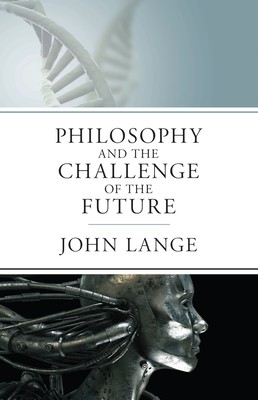
- We will send in 10–14 business days.
- Author: John Lange
- Publisher: OPEN ROAD DISTRIBUTION
- ISBN-10: 1504024702
- ISBN-13: 9781504024709
- Format: 14 x 21.6 x 2.7 cm, minkšti viršeliai
- Language: English
- SAVE -10% with code: EXTRA
Reviews
Description
The difference between a status-quo, but revisable, "common sense" and new realities, new discoveries, and such, generates a tension. One of the places where philosophy spends its time is the border country between a new science and an old common sense. What sense can we make of new truths, new possibilities, in, reprogenetics, cloning, genetic engineering, artificial intelligence, artificial life, and such? How shall we think about them? Should they alter our view of the world, not merely additively, as in learning a new telephone number, but radically, as in taking seriously the hypothesis that wind is a meteorological phenomenon and not the breath of a god, that the earth moves, that humanity might be transformed, for example, biologically, by means of genetic engineering, and technologically, by means of electronic implants and enhancements? Our species, unique among known species, can control its own evolution. Will it do so? Should it do so? How might it do so?
Philosophy has new things to do, and new places to go. This book begins the journey.EXTRA 10 % discount with code: EXTRA
The promotion ends in 23d.05:44:01
The discount code is valid when purchasing from 10 €. Discounts do not stack.
- Author: John Lange
- Publisher: OPEN ROAD DISTRIBUTION
- ISBN-10: 1504024702
- ISBN-13: 9781504024709
- Format: 14 x 21.6 x 2.7 cm, minkšti viršeliai
- Language: English English
The difference between a status-quo, but revisable, "common sense" and new realities, new discoveries, and such, generates a tension. One of the places where philosophy spends its time is the border country between a new science and an old common sense. What sense can we make of new truths, new possibilities, in, reprogenetics, cloning, genetic engineering, artificial intelligence, artificial life, and such? How shall we think about them? Should they alter our view of the world, not merely additively, as in learning a new telephone number, but radically, as in taking seriously the hypothesis that wind is a meteorological phenomenon and not the breath of a god, that the earth moves, that humanity might be transformed, for example, biologically, by means of genetic engineering, and technologically, by means of electronic implants and enhancements? Our species, unique among known species, can control its own evolution. Will it do so? Should it do so? How might it do so?
Philosophy has new things to do, and new places to go. This book begins the journey.

Reviews